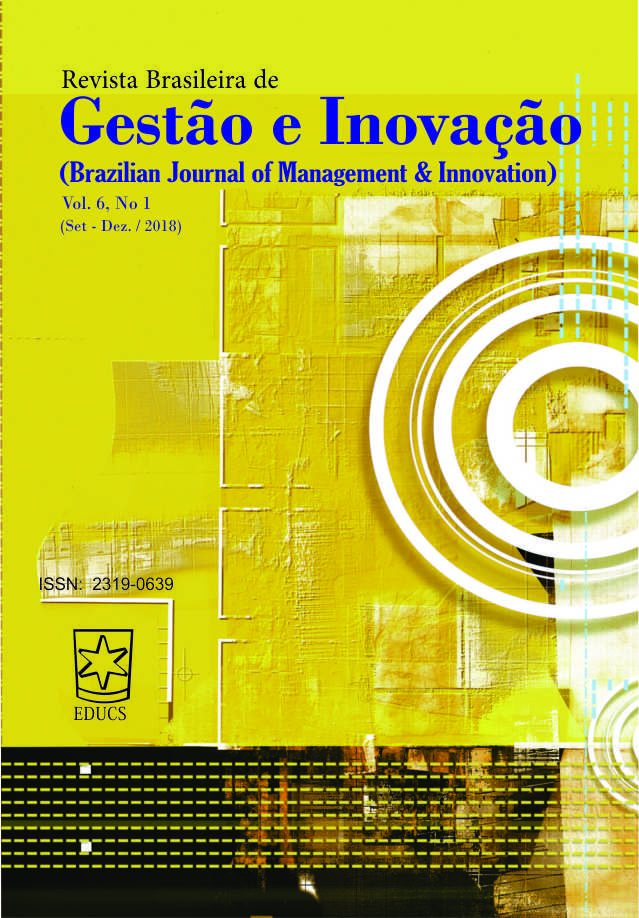PREMISSAS E BENEFÍCIOS DO MODELO DE GESTÃO COLABORATIVO EM STARTUPS | PREMISES AND BENEFITS OF THE COLLABORATIVE MANAGEMENT MODEL IN STARTUPS
Keywords:
Modelos de gestão, Colaboração, Gestão colaborativa, Startups.Abstract
O objetivo deste artigo é investigar e descrever as principais premissas e benefícios do modelo de gestão colaborativo em startups. Para alcança-lo, adota-se a abordagem qualitativa, o método de estudo de casos múltiplos e o caráter descritivo de pesquisa. O instrumento utilizado para coleta de dados foi a entrevista semiestruturada. Para a análise dos dados utilizou-se a técnica de análise de conteúdo. Os resultados permitem, a priori, identificar premissas relacionadas aos processos de comunicação, cooperação e coordenação organizacional necessárias para a adoção dos modelos de gestão colaborativos, bem como benefícios de mesma natureza oriundos a partir de sua adoção. Desta forma, as evidências observadas permitem concluir que a gestão colaborativa pode ser uma alternativa viável ao desenvolvimento das startups, visto o ambiente e o contexto no qual esses negócios estão inseridos, assim como as necessidades de desenvolvimento rápido e estrutura diminuta e enxuta que os caracterizam. Entretanto, apesar dos benefícios identificados na presente investigação, a adoção do modelo de gestão colaborativo em uma organização necessita de análises e estudos mais profundos, uma vez que a adoção de um modelo desta natureza deve estar adequado às necessidades inerentes à gestão organizacional, aos objetivos e ao contexto no qual opera.
Downloads
Published
How to Cite
Issue
Section
License
The author must guarantee that:
- there is full consensus among all the coauthors in approving the final version of the document and its submission for publication.
- the work is original, and when the work and/or words from other people were used, they were properly acknowledged.
Plagiarism in all of its forms constitutes an unethical publication behavior and is unacceptable. Revista Brasileira de Gestão e Inovação has the right to use software or any other method of plagiarism detection.
All manuscripts submitted to RBGI - Revista Brasileira de Gestão e Inovação go through plagiarism and self-plagiarism identification. Plagiarism identified during the evaluation process will result in the filing of the submission. In case plagiarism is identified in a manuscript published in the journal, the Editor-in-Chief will conduct a preliminary investigation and, if necessary, will make a retraction.
This journal, following the recommendations of the Open Source movement, provides full open access to its content. By doing this, the authors keep all of their rights allowing Revista Brasileira de Gestão e Inovação to publish and make its articles available to the whole community.
RBGI - Revista Brasileira de Gestão e Inovação content is licensed under a Creative Commons Attribution 4.0 International License.
Any user has the right to:
- Share - copy, download, print or redistribute the material in any medium or format, linking to RBGI site.
- Adapt - remix, transform and build upon the material for any purpose, even commercially.
According to the following terms:
- Attribution - You must give appropriate credit, provide a link to the license, and indicate if changes were made. You may do so in any reasonable manner, but not in any way that suggests the licensor endorses you or your use.
- No additional restrictions - You may not apply legal terms or technological measures that legally restrict others from doing anything that the license permits.
#RBGI







